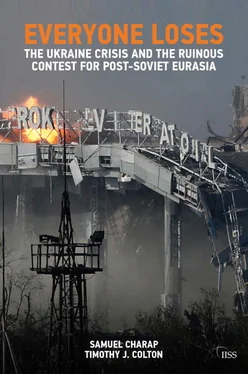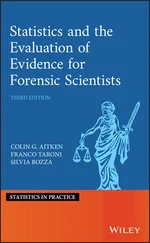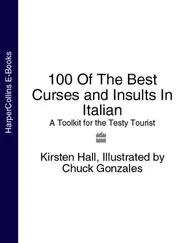Even if Russia had welcomed the EU’s involvement with the In-Betweens, the AA/DCFTA model might not have been the right policy instrument for the region. Better formal laws and regulations cannot cure basic pathologies of governance in these countries, which stem from corrupt informal political-economic practices and feeble and often imitative democratic institutions. As we will see, no hard evidence to date has shown that the agreements produced positive changes in governance in the three countries that eventually signed up: Moldova, Georgia and Ukraine.
In May 2009, EU policies toward the six In-Betweens were enhanced and grouped under the banner of the Eastern Partnership. The Commission described it as ‘a real step change in relations with our Eastern neighbours, with a significant upgrading of political, economic and trade relations. The goal is to strengthen the prosperity and stability of these countries, and thus the security of the EU.’ [59] ‘European Security Strategy: A Secure Europe in a Better World’, 2009, p. 23, http://www.consilium.europa.eu/en/documents-publications/publications/2009/pdf/european-security-strategy-secure-europe-better-world/ .
Notwithstanding these lofty ambitions, the Eastern Partnership exacerbated the regional contestation. Although some differentiation was to emerge years later, the policy was initially the same for all the In-Betweens – regardless of their level of involvement in Russia-led institutions, or their adherence to the first two Copenhagen Criteria of democracy and market reform. For example, the decision to include Belarus, Russia’s closest ally, and arguably the most authoritarian government in the region, created a strong impression that geopolitics was driving EU decision-making.
Russia was not pleased. To Solana, it was apparent almost instantly that the initiative was raising eyebrows, and worse, in Moscow. [60] Authors’ interview with Javier Solana.
As Russian Foreign Minister Sergei Lavrov put it in 2009, ‘We are accused of having spheres of influence. But what is the Eastern Partnership, if not an attempt to extend the EU’s sphere of influence, including to Belarus?’ [61] Valentina Pop, ‘EU Expanding Its “Sphere of Influence,” Russia Says’, EUobserver , 21 March 2009, https://euobserver.com/foreign/27827 .
It did not help that prominent European politicians and commentators viewed the programme in precisely these terms. As one German analyst wrote in response to Lavrov’s question, ‘The answer, of course, is yes…. In the post-Soviet space, neutrality is not an option for Europe…. We must face up to the fact that we are engaged in a systemic competition [with Russia].’ [62] Constanze Stelzenmüller, ‘Walk – But Learn to Chew the Gum Too. After the Russo–Georgian War of 2008: Transatlantic Approaches to a New Eastern Policy’, paper presented at the 11th Annual Foreign Policy Conference of the Heinrich Böll Stiftung, Berlin, 27 September 2010, p. 10.
Russia’s negative reaction to the EU’s foray into the In-Between countries thus was apparent several years before the Ukraine crisis began. So too was the reality that many members of the EU, particularly the new ones, always regarded the Eastern Partnership as an initiative intended to wrest their neighbours from Moscow’s grasp. Russia, in turn, rejected EU efforts on principle; if Brussels wanted to proceed, it would have to come to the Kremlin and kiss the ring. As the Russian analyst Andrei Zagorski puts it, ‘Moscow specifically underlines that no attempt at regional cooperation in this part of Europe is possible if it does not involve the Russian Federation.’ [63] Andrei Zagorski, ‘Eastern Partnership from the Russian Perspective’, Internationale Politik und Gesellschaft, vol. 3, 2011, p. 46, http://library.fes.de/pdf-files/ipg/2011-3/05_zagorski.pdf .
Russia’s dogged pursuit of a say in other countries’ decisions made the EU more determined to proceed with its plans and less inclined to discuss them with Moscow. As German Chancellor Angela Merkel told parliament in November 2013, ‘To put it unequivocally – the countries must decide themselves on their future direction. Third parties cannot have the right of veto.’ [64] ‘Government Statement Delivered by Chancellor Angela Merkel on the EU’s Eastern Partnership Summit to Be Held on 28/29 November 2013 in Vilnius’, 18 November 2013, https://www.bundeskanzlerin.de/ContentArchiv/EN/Archiv17/Regierungsrerkl%C3%A4rung/2013-11-18-merkel-oestl-partnerschaften.html .
The regional elites had incentives to stoke this competition since they knew that their clout would be maximised if multiple external patrons were in competition with one another.
Less than a month after the Eastern Partnership was launched, Russia countered with its own initiative, and Moscow-led integration in post-Soviet Eurasia finally gained traction after almost 20 years of dithering. In June 2009, Russia, Kazakhstan and Belarus agreed to form an institutionalised Customs Union effective from 1 January 2010. [65] The timing of the move was apparently due to a push from Kazakhstan’s President Nazarbaev. It came as a surprise to many, including those officials negotiating Russia’s WTO accession, who had to adjust that process to accommodate the new Customs Union.
While any number of past geo-economic efforts had been stillborn, this for once was a concrete step. The failure of previous initiatives had led Moscow to trim down its ambitions for membership of the Customs Union, starting with only the two states most willing to move forward.
In form, the Customs Union was a significant departure from past post-Soviet practices and was closer to the early stages of the EU than to the moribund CIS. Under the 2009 agreement, a Customs Union Commission was to function as a permanent decision-making and adjudicative mechanism; it, and not the national governments, had the authority to set tariffs. The three founders quickly moved to create something more substantial, progressing from the creation of a single market in 2012 to the Eurasian Economic Union (EEU) in 2015. With the forming of the EEU, a Eurasian Economic Commission (EEC), a fully fledged institution with its own bureaucracy, replaced the Customs Union Commission and a court was created to resolve trade disputes.
In its initial stages, this project should be graded as a guarded success. [66] See European Bank for Reconstruction and Development, ‘Regional Trade Integration and Eurasian Economic Union’, in Transition Report 2012: Integration Across Borders , 2012, pp. 62–79, http://tr.ebrd.com/tr12/images/downloads/TR12_EN_web_bookmarks3.pdf .
Customs posts were removed on the borders between Russia and the two other members. EEC data shows a large increase in intra-Customs Union trade in 2010–12. Once Russia became a member of the World Trade Organization (WTO) in 2012, the Customs Union had to adopt a system of rules in line with WTO standards, hence exporting international norms to other members that did not belong to the WTO (Kazakhstan joined in 2015). Decision-making is conducted by consensus at the level of Council of the EEC, a body comprising deputy prime ministers from all member states with a rotating presidency. While there is evidence of Russia’s using political, economic and security instruments to keep other members in line, the need to achieve unanimous votes on major decisions has at times forced it to compromise. This requirement also gave the smaller member states a voice on policy decisions that were previously Russia’s exclusive prerogative. EEU officials professed an aspiration to emulate the best practices of the EU.
The EEU began as a technocratic, if geo-economic, endeavour, even though some outsiders have had doubts about the economic logic behind it. Be that as it may, Russia’s great-power aspirations and the intensifying zero-sum dynamic in the region between it and the EU soon began to shape Eurasian economic integration and to link it to geopolitics. In an article in the daily Izvestiya written in October 2011, as he was beginning his campaign to return to the presidency, then-prime minister Putin laid out his vision for the future of the bloc. He envisioned a ‘model of a powerful supranational association, capable of becoming one of the poles of the modern world and of playing the role of an effective inter-linkage between Europe and the dynamic Asia-Pacific region’. [67] Vladimir Putin, ‘Novyi integratsionnyi proekt dlya Evrazii — budushchee, kotoroe rozhdaetsya segodnya’, Izvestiya , 3 October 2011.
What was then just a customs union – focused on mundane work like tariff unification and food-safety standards – had been given the geopolitical mission of ensuring Russia’s international heft for the twenty-first century. In the article, Putin called this future entity the ‘Eurasian Union’.
Читать дальше











